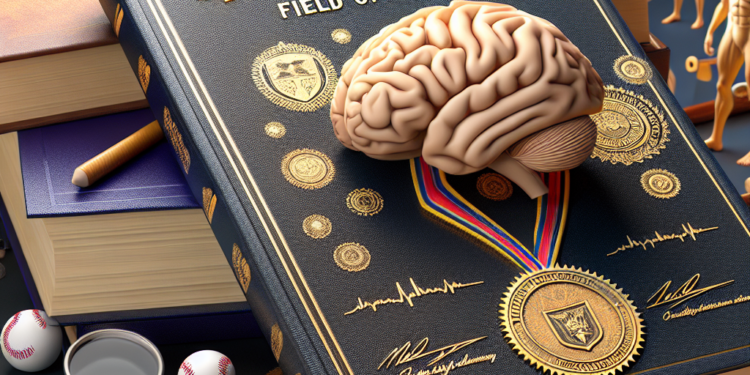Master’s Degree in Sports Psychology. In today’s competitive sports world, athletes are continually seeking innovative ways to enhance their performance. While physical training and practice are fundamental, the mental aspect of sports is equally crucial. Sports psychology addresses this need by focusing on the psychological factors that influence athletic performance. A master’s degree in sports psychology can open doors to various career opportunities, allowing professionals to work closely with athletes to enhance their mental game and overall performance. This degree not only offers a deep dive into psychological principles but also equips graduates with practical skills to make a tangible impact in the sports industry.
Understanding Sports Psychology
Sports psychology is the study of how psychological factors affect sports performance and physical activity. It involves understanding the mental processes that influence athletes’ behavior and applying techniques to improve focus, motivation, and overall performance. This field examines the intricate relationship between mind and body, exploring how emotions, thoughts, and attitudes can impact an athlete’s ability to perform at their best. By delving into these psychological aspects, sports psychologists aim to unlock an athlete’s potential, helping them to achieve peak performance consistently.
Key Areas of Sports Psychology
- Performance Enhancement: Techniques to help athletes improve their focus, confidence, and motivation are pivotal. By using visualization, goal-setting, and self-talk strategies, sports psychologists can help athletes achieve a mental edge over their competition. These techniques are designed to strengthen an athlete’s mental resilience, enabling them to maintain composure and concentration under pressure.
- Mental Health and Well-being: Addressing issues such as anxiety, stress, and burnout in athletes is crucial for maintaining peak performance levels. Sports psychologists work to create a supportive environment where athletes feel comfortable discussing their mental health challenges. By implementing coping strategies and stress management techniques, they help athletes build mental fortitude to withstand the pressures of competitive sports.
- Team Dynamics and Communication: Improving communication and cooperation within teams is essential for success Master’s Degree in Sports Psychology. Sports psychologists facilitate workshops and training sessions that promote effective communication, conflict resolution, and team cohesion. By fostering an environment of trust and mutual respect, they help teams develop a strong sense of unity and shared purpose.
- Injury Recovery: Psychological strategies to help athletes cope with injuries and return to their sport are vital. Sports psychologists assist athletes in navigating the emotional challenges of injury, such as frustration and fear of re-injury. Through counseling and mental conditioning, they support athletes in maintaining a positive mindset and staying motivated throughout the recovery process.
Why Pursue a Master’s Degree in Sports Psychology?

A master’s degree in sports psychology provides in-depth knowledge and skills that are crucial for working in this field. Here are some reasons why pursuing this degree could be a great choice:
- Specialized Knowledge: Gain a deep understanding of psychological theories and their application in sports. This advanced education allows you to explore diverse topics, such as cognitive-behavioral techniques, motivation theories, and emotional regulation strategies, which are essential for developing effective interventions.
- Career Opportunities: Qualify for various roles such as sports psychologist, coach, or consultant. A master’s degree not only opens doors to traditional roles but also to emerging areas like esports psychology and performance coaching for corporate teams, broadening your career prospects significantly.
- Professional Certification: Many programs prepare you for certification, enhancing your credibility and career prospects. Certification serves as a testament to your expertise, reassuring clients and employers of your ability to apply psychological principles effectively in sports settings.
Career Paths with a Master’s Degree in Sports Psychology
- Sports Psychologist: Work with athletes to improve mental resilience and performance. This role involves one-on-one consultations, developing personalized mental training programs, and providing support during competitions to help athletes manage pressure and anxiety effectively.
- Athletic Coach: Use psychological principles to enhance team performance and motivation. Coaches with a background in sports psychology can integrate mental conditioning techniques into their training routines, fostering a holistic approach that benefits both individual athletes and teams.
- Rehabilitation Specialist: Help injured athletes recover mentally and physically. By incorporating psychological support into rehabilitation programs, specialists can address the emotional and mental hurdles athletes face during recovery, aiding in a more complete and quicker return to sport.
- Researcher or Educator: Conduct research or teach at universities and colleges. With a master’s degree, you can contribute to the advancement of sports psychology by exploring new theories and practices or educating the next generation of sports psychologists through comprehensive teaching roles.
Choosing the Right Sports Psychology Program
When selecting a master’s program, consider factors such as accreditation, faculty expertise, and practical training opportunities. These elements are crucial in ensuring that the education you receive is both reputable and applicable to real-world scenarios. Look for programs that offer hands-on experience through internships or practicums, as these are invaluable in applying theoretical knowledge in real-world settings. Practical experience not only enriches your learning but also enhances your resume, making you more competitive in the job market.
Important Factors to Consider
- Accreditation: Ensure the program is accredited by relevant educational bodies. Accreditation guarantees that the program meets specific academic standards, providing assurance of the quality and rigor of your education.
- Curriculum: Look for a curriculum that covers a broad range of topics in sports psychology. A comprehensive curriculum should include courses on psychological assessment, intervention strategies, and ethical considerations, ensuring a well-rounded education.
- Faculty: Research the background and expertise of the faculty members. Faculty with diverse experiences and research interests can provide unique insights and mentorship, enriching your educational journey.
- Practical Experience: Check for opportunities for internships and fieldwork. Programs that offer partnerships with sports teams, clinics, or research institutions provide invaluable hands-on experience, allowing you to apply classroom knowledge in real-world contexts.
Obtaining Sports Psychology Certification

Certification can enhance your career prospects in sports psychology. While a master’s degree provides the educational foundation, certification demonstrates your commitment and expertise in the field. The Association for Applied Sport Psychology (AASP) offers a Certified Mental Performance Consultant (CMPC) designation, which is highly regarded in the industry. This certification is a hallmark of professional excellence, signaling to clients and employers that you have met rigorous standards of practice.
Steps to Certification
- Complete a Master’s Program: Graduate from an accredited sports psychology program. This foundational step ensures you have the necessary academic background to pursue certification.
- Accumulate Experience: Gain supervised experience in the field. Practical experience under the guidance of seasoned professionals is essential, as it allows you to refine your skills and build confidence in your practice.
- Pass the Certification Exam: Demonstrate your knowledge and skills through a standardized exam. This exam tests your understanding of core concepts and your ability to apply them effectively, serving as a benchmark for professional competency.
- Maintain Certification: Engage in continuing education to keep your skills updated. Staying abreast of the latest research and techniques in sports psychology is crucial for maintaining your certification and providing the best possible service to your clients.
The Future of Sports Psychology
The field of sports psychology is constantly evolving, with growing recognition of its importance in athletic performance. As more athletes and teams prioritize mental health, the demand for qualified sports psychologists is expected to rise. The integration of mental health initiatives within sports organizations highlights the critical role sports psychologists play in fostering overall athlete well-being. Emerging technologies, such as virtual reality and biofeedback, are also being integrated into sports psychology practices, offering new avenues for research and application. These technologies provide innovative ways to simulate competitive environments and track physiological responses, enhancing the effectiveness of psychological interventions.
Emerging Trends
- Technology Integration: Use of virtual reality and other technologies in training and therapy is revolutionizing sports psychology. These tools offer immersive experiences that can help athletes practice mental skills in controlled, realistic settings.
- Focus on Mental Health: Increased emphasis on addressing mental health issues in sports is reshaping the industry. Sports psychologists are now more involved in creating wellness programs and advocating for mental health resources within sports organizations.
- Global Opportunities: Opportunities to work with international teams and athletes are expanding. As sports become more globalized, there is a growing need for sports psychologists who can navigate cultural differences and provide tailored support to diverse athlete populations.
Master’s Degree in Sports Psychology
A master’s degree in sports psychology can be a rewarding path for those passionate about sports and mental health. With the right education and certification, you can make a significant impact on athletes’ lives, helping them achieve their best both mentally and physically. Whether you’re interested in working directly with athletes or contributing to research and education, this field offers diverse and fulfilling career opportunities. The skills and knowledge gained through a master’s program provide a strong foundation for a career that bridges the gap between sports and psychology.
Embarking on this journey requires dedication and a genuine interest in the mental aspects of sports. By choosing the right program and pursuing certification, you’ll be well-equipped to thrive in the dynamic and exciting world of sports psychology. As the field continues to grow and evolve, those with a passion for helping others will find numerous opportunities to make a meaningful difference in the lives of athletes and the broader sports community.




